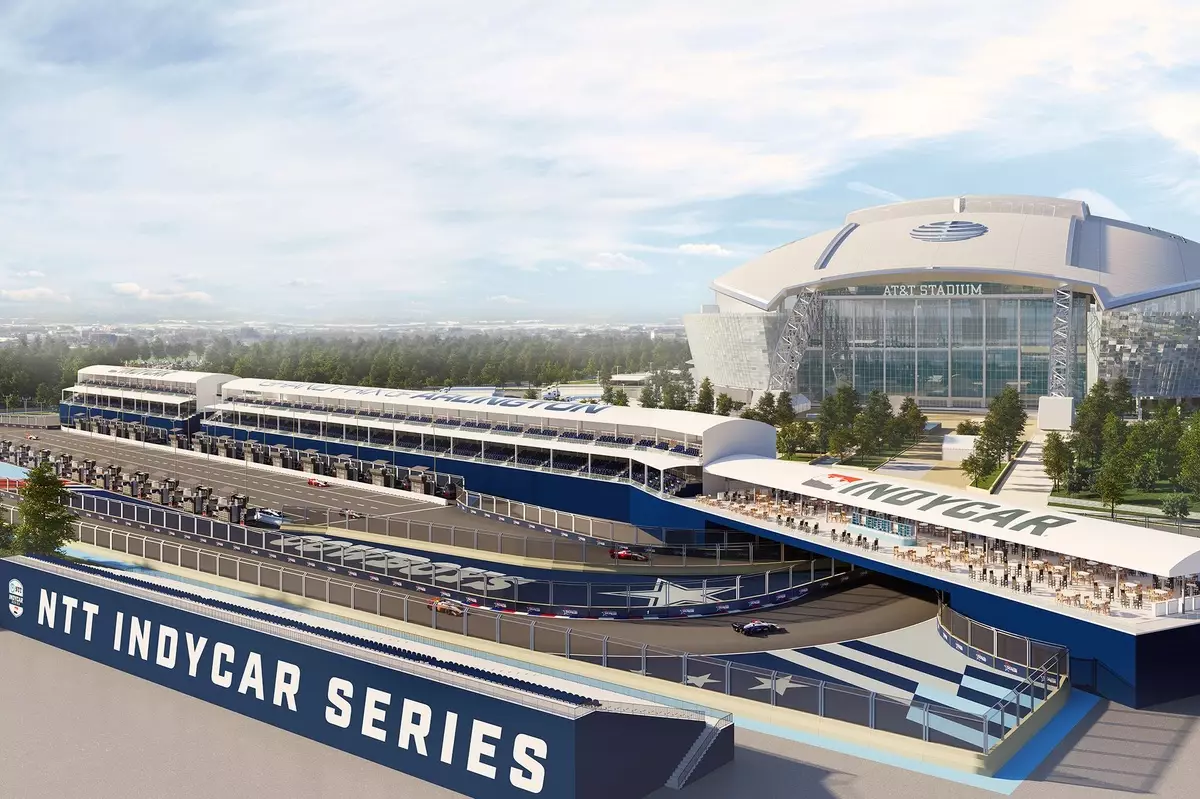The recent announcement regarding the inaugural Grand Prix of Arlington, set to take place in 2026, marks a pivotal moment in the realm of IndyCar racing. This highly anticipated event not only signals the return of IndyCar to Texas after a two-year hiatus, but also introduces a cutting-edge street circuit that is poised to elevate the racing experience to new heights. In a collaborative endeavor involving Penske Entertainment, the Dallas Cowboys, and REV Entertainment—official events partner of the Texas Rangers—this initiative aims to merge sports entertainment with the electrifying atmosphere of high-speed motor racing.
What truly distinguishes the Grand Prix of Arlington is its innovative 14-turn, 2.73-mile street circuit crafted by celebrated architect Tony Cotman. In contrast to the brief 1.968-mile layout previously utilized in Long Beach, this expansive design promises a thrilling range of competitive scenarios. With a notable straight measuring 0.9 miles, drivers can expect to reach exhilarating speeds exceeding 180 mph, emphasizing both the engineering prowess required for high-performance vehicles and the strategic thinking necessary to conquer tight turns, particularly at Turn 10, where braking becomes crucial.
The design ingeniously incorporates distinct passing zones at key locations, notably Turns 1, 12, and 14. Moreover, an innovative “horseshoe” carousel at Turn 6 introduces a unique challenge that enhances the complexity for drivers while providing an enticing spectacle for fans. The double-sided pit lane, mirroring the setup used in the Detroit street race, showcases modern advancements in race strategy, allowing teams to optimize their pit stops effectively.
The unveiling event in Arlington attracted significant attention from notable IndyCar drivers, including Team Penske’s Josef Newgarden, Chip Ganassi Racing’s Alex Palou, and AJ Foyt Racing’s Santino Ferrucci. Newgarden, in particular, provided insights into the dynamics expected on the new circuit. He emphasized the diverse characteristics of the layout, which blends traditional low-speed sections typical of street courses with high-speed corners that lead directly onto the competitive straightaway.
Newgarden expressed enthusiasm for the unique challenges the Arlington course presents, suggesting that it will demand innovative approaches to downforce management. He noted, “Understanding efficiency with downforce will be essential here, as it’s a topic that doesn’t significantly play out on other street circuits.” The potential for strategic drafting along the long straight could dramatically influence race outcomes, emphasizing the need for skilled drivers to maintain their lead against formidable competitors.
The collaborative nature of the Grand Prix underscores the ambition and potential that comes with blending resources and expertise from various stakeholders in the sporting world. The involvement of the Dallas Cowboys and REV Entertainment not only expands the reach of the IndyCar series but also illustrates an increased commitment to merging diverse sporting traditions and fan bases. The event aims to create a festive environment, enhancing the overall experience for attendees—something that is vital for the longevity and popularity of motorsport events in today’s competitive entertainment landscape.
As the Grand Prix of Arlington gears up to make its debut in 2026, the excitement surrounding this groundbreaking event is palpable. The combination of an intricate circuit design, a focus on strategic racing dynamics, and invaluable partnerships promises to set a new benchmark for IndyCar racing in Texas and beyond. While much work remains to be done in preparation for this significant race, the sense of anticipation and the prospect of thrilling competition are sure to captivate fans and enthusiasts alike. The Arlington Grand Prix is not just about racing; it’s about creating a landmark event that celebrates the spirit of motorsport and provides an unforgettable experience for all.


Leave a Reply